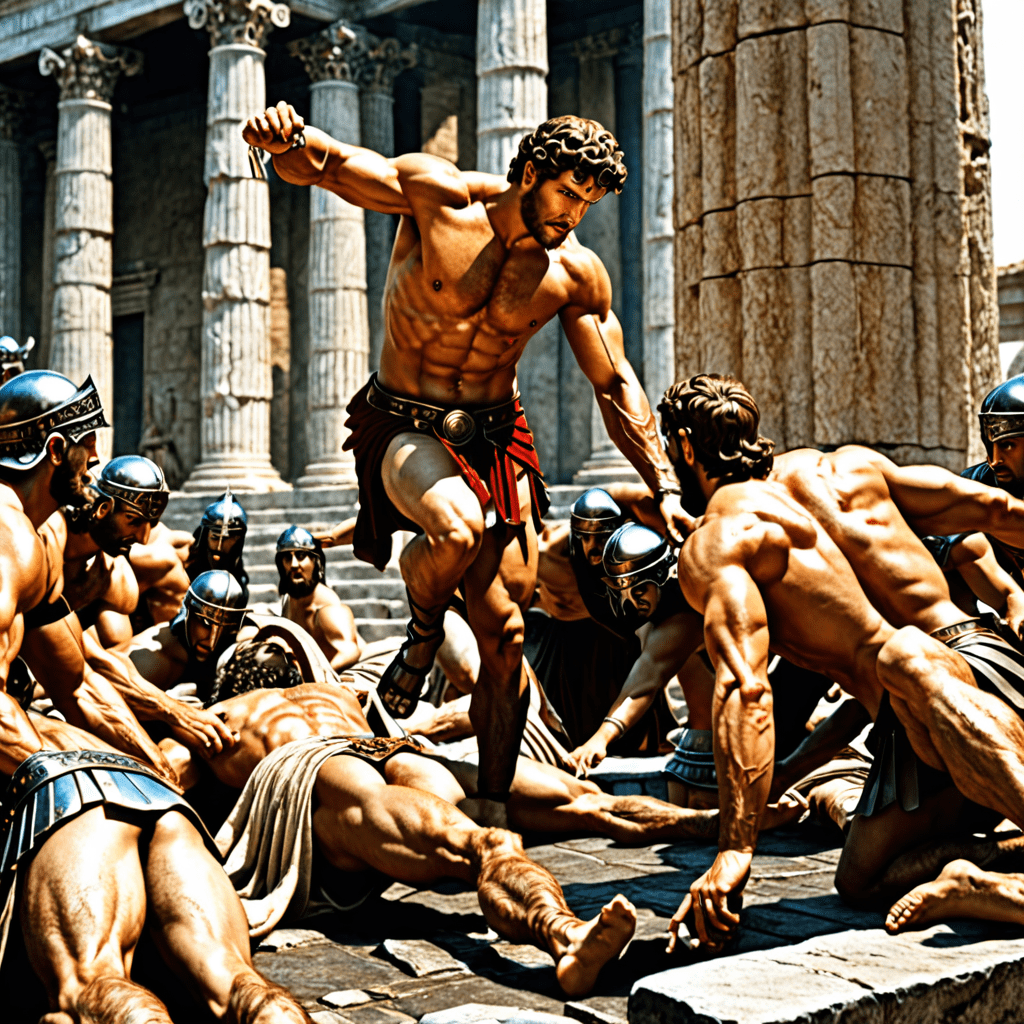The Sacred Act of Sacrifice in Roman Mythology
In Roman mythology, the concept of sacrifice held profound significance, reflecting the deep connection between humans and the divine. The act of sacrifice was a revered ritual, essential for maintaining harmony between mortals and gods.
Understanding the Purpose of Sacrifice in Roman Culture
Sacrifice in Roman mythology served various purposes, including expressing gratitude, seeking favor from deities, ensuring fertility and prosperity, and even averting disasters. It was believed that by offering gifts to the gods, individuals could establish communication with the divine realm and earn their benevolence.
The Rituals and Offerings of Roman Sacrifices
Depending on the nature of the request or occasion, different types of sacrifices were performed in Rome. These could involve the ritual slaughter of animals such as lambs, pigs, or bulls, as well as offerings of food, wine, incense, and symbolic objects. Priests, known as pontiffs, played a vital role in overseeing these ceremonies with utmost precision and reverence.
The Symbolism and Legacy of Sacrifice in Roman Mythology
The act of sacrifice was deeply symbolic in Roman mythology, symbolizing the reciprocal relationship between mortals and deities. Through sacrifice, Romans acknowledged their dependence on divine forces while affirming their religious devotion. The legacy of sacrifice in Roman culture continues to inspire reflections on duty, gratitude, and the interconnectedness of humanity and the divine.
FAQs about Roman Mythology: Exploring the Concept of Sacrifice
What is the significance of sacrifice in Roman mythology?
Sacrifice in Roman mythology served as a way to appease and honor the gods, seeking their favor and blessings. It was a ritual deeply intertwined with religious beliefs and cultural practices.
How was sacrifice performed in Roman mythology?
Sacrifices in Roman mythology often involved offering animals, such as bulls, sheep, or pigs, to the gods. The ritual included prayers, burning the animal’s entrails, and sharing a portion of the offering as a communal meal.
Which gods in Roman mythology were commonly associated with sacrifice?
Gods like Jupiter, Juno, Mars, and Vesta were often linked to sacrificial practices in Roman mythology. Each deity had specific rituals and offerings dedicated to them, reflecting their importance in the Roman pantheon.
What were the beliefs behind sacrifice in Roman mythology?
Romans believed that sacrifices demonstrated piety, gratitude, and a form of communication with the divine. By giving offerings to the gods, they sought protection, prosperity, and goodwill in return.
Were human sacrifices part of Roman mythology?
Unlike some ancient cultures, human sacrifices were not a common practice in Roman mythology. The Romans primarily offered animals as sacrifices, valuing the symbolic meaning and ritualistic aspects of



